 Photo by Marc Lemieux. Photo by Marc Lemieux. As a kid, my father lovingly—and about half-jokingly—told me that I was “not like the other children.” Teasing or not, he was right; for evidence, one needed look no further than my school supplies. While other girls’ notebooks were photo collages of Britney Spears and Jonathon Taylor Thomas, mine were plain. To be honest, they were probably covered with “Niki’s Stuff!” in jell-penned bubble letters, but my point is that I was never one for celebrity worship. My heroes, my inspirations, were the stuff of literature and history. Joan of Arc, Elizabeth I, Jane Eyre, Elizabeth Bennet. Strong women, bold women—women who defied gender roles and societal expectations. They spoke when they had something to say. They fought when the cause demanded it. They were brave, they were fierce. Yet, always, they maintained their dignity and poise. Femininity and power, they taught me, were not mutually exclusive. I learned this lesson anew from the Duchess of Malfi, as played by Laura Cole. Resurgens Theatre Company is producing The Duchess of Malfi, John Webster’s macabre masterpiece, this weekend at The New American Shakespeare Tavern, and I was fortunate enough to see the production in rehearsal. It was nothing short of a dark delight. Malfi has it all—murder, incestual desires, a werewolf, a poisoned Bible, and even a severed hand. But, at its heart, is the bright, fiery person of the Duchess. Forbidden by her brothers to marry after the death of her first husband, the Duchess takes an empowered stand against patriarchal rule and defies them. Not only does she remarry, she proposes, and to a man beneath her social standing.
2 Comments
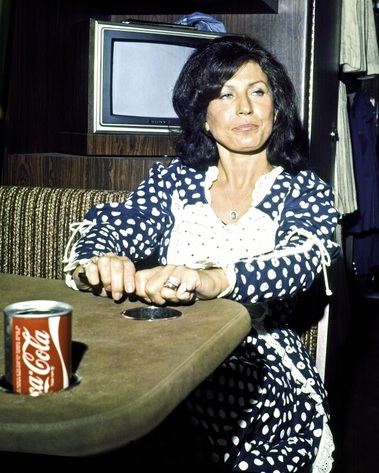 Loretta Lynn, circa 1975. Photo by Gene Pugh. Retrieved from Wikimedia Commons. Loretta Lynn, circa 1975. Photo by Gene Pugh. Retrieved from Wikimedia Commons. Growing up, my older sister and I listened to a lot of classic country music—Alan Jackson, George Straight, Patsy Cline—but there was one classic female singer we listened to more than anyone: Loretta Lynn. We would often ride down the road singing “I was born a coal miner’s daughter,” changing the words “coal miner’s daughter” to “carpenter’s daughter” since our daddy was a carpenter. Lynn grew up a simple Southern girl, much like us. We could listen to her music and know that we weren’t the only girls brave enough to shoot and skin a deer for supper. We could relate to her. Aside from that, we loved her beautiful voice and the hard work she put into her career. Loretta Lynn made history by being the first woman in the country music industry to have a certified gold album. She also recorded 26 number-one hits. Because of these things and several others, Loretta Lynn has become the “Queen of Country Music.” Through her career, she never once gave up. She worked hard and has not only set an amazing example for both female and male country artists, but has paved the way for artists of all types. In her music, she wrote and sang about real life while adding in humor here and there, making her relatable to all of her listeners. Lynn used her incredible voice to accomplish so much throughout her career and she is still progressing today. 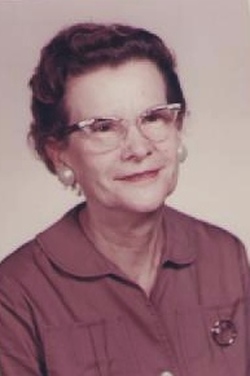 Robie Sarah Martin, or "Gram," circa 1961. Robie Sarah Martin, or "Gram," circa 1961. My students often tell me, after the standard first-day introductions, that they’ve never had a teacher like me before. When I first began teaching at twenty-two, just a few years older than most of my college-freshman students and younger than some, that statement troubled me. Was I doing it wrong? Was I doomed to be labeled “that weird teacher” for posterity? What I first took offense at I now take as a compliment, for such a statement usually means that I contradict, and thus work to expand, their preconceived, oversimplified notions of what it means to be a woman, what it means to be an authority figure, or what it looks like to endeavor to be both of those things at once. As I get older, though, I’m less disturbed and more gratified by the supposed contradictions that make me who I am. I am also driven to look backward in order to look forward: to explore the women in my life who modeled those beautiful complexities of feminine power and helped me appreciate their value. Chief among those women is my great-grandmother, or “Gram.” She died when I was only eight years old, but in that short time, she taught me two things above all: to work hard at whatever I chose to do, and to always have compassion for others, because you never know what they may be suffering. This essay is my way of paying tribute to her, and to those values. Even as I have gone through the process of writing it, I feel that she is still teaching and encouraging me. The essay is not exhaustive, as it doesn’t cover her entire life. Moreover. I do not claim to be adept even at the amateur genealogy attempted in it, but the knowledge I gained through this research was certainly interesting to grapple with. 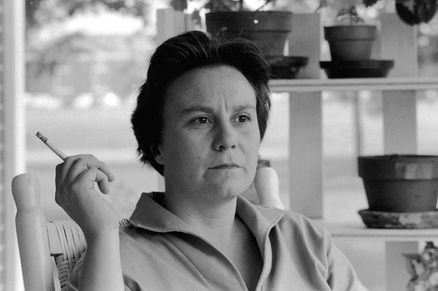 Nelle Harper Lee, circa 1962. Retrieved from Wikimedia Commons. Nelle Harper Lee, circa 1962. Retrieved from Wikimedia Commons.
I read Harper Lee’s To Kill a Mockingbird for the first time when I was in the eighth grade. It was required reading for us that year, as it was—and continues to be—for most middle school students around the country. I remember liking it well enough, but beyond that, my memories of reading what was until recently Lee’s only novel are fuzzy, clouded by the haze of adolescence. I cannot recall supposing that Scout was a careful and clever observer of her small town’s social order, or that Atticus was anything other than a model man, lawyer, and all-around human being. I can’t remember being stirred emotionally by Boo’s misunderstood reclusiveness or by the tragic fate of Tom Robinson. I certainly don’t remember being at all attuned to the novel’s darker themes, its biting critique of the way that the South’s racial, class, and gender politics intersect and oppress. Despite being a voracious young reader, To Kill a Mockingbird was simply not at the top of my list of things that interested me. I was regrettably (and perhaps ironically) too preoccupied with the frivolities of girlhood; playfully experimenting with lip gloss and glittery eye shadows, fretting over whether or not the cute boy in class would return my affections, making plans to socialize with friends at the movie theatre, and other trivial minutiae that I mistook for a Serious and Important part of my coming-of-age consumed most of my thirteen-year-old brain space and left little room for Mockingbird.
I finally revisited Lee’s novel when I was in graduate school. At this point, I’d left behind the shimmery cosmetics of my youth (mostly) and was pursuing my studies in Southern literature. I felt compelled to give To Kill a Mockingbird another go, aware that my reading experience as a young girl would be vastly different than reading the novel as an adult. Though I anticipated that it would speak to me more this time around, I was not prepared for just how deeply and profoundly it would resonate. I saw now that Scout was not merely some winsome child narrator; she is a dissident voice who not only challenges Maycomb’s rigid class and racial divides, but who never lets her gender define her or dictate her interests. I’d at least taken note of Scout’s precocity when I was an eighth grader, but I was awed by how little Scout’s criticism of her social order had registered with me. Even more astonishing, though, was my newfound understanding of the novel’s other central female character, Mayella Ewell. The Mayella I recalled from my youth was a nefarious villain, but as an adult, I see that this is absolutely not the case. Mayella is not a villain, as we are all too often encouraged to see her, but an unfortunate victim who is violated over and over and over again: by her father, who definitely beats her and is most likely the one actually responsible for raping her; by Atticus in the courtroom, whose basic defense relies on the pernicious assumption that victims of rape are somehow “asking for it” (I think this also speaks to my shift in perception of Atticus); and by the very system of class, race, and gender politics that legitimate the place of Mayella’s “white trash” sexuality in Maycomb’s (and the South’s) white patriarchy. For the life of me, I can’t understand why in God’s name this is a book assigned to kids. Sure, it teaches readers about the dangers of racism and the importance of humanity in the face of injustice, but the novel is much darker and much more complex than that. To Kill a Mockingbird is equally concerned with the oppressive nature of gender roles and with how often gender, race, and class get tangled together inseparably. Inasmuch as it is a reflection on race relations, To Kill a Mockingbird is also a meditation on the violence on which gender roles are built in the South. by Lindsey Castille In my junior year of high school, I was involved with a group of people trying to start a gay/straight alliance club. Ultimately, we were shut down by the principal, who was seemingly homophobic. This is not a strange occurrence, at least where I live in “the Bible Belt,” where people look forward to their Wednesday night services and where being Christian is not only normal, but expected. I believe the younger generation at least is generally more accepting than the older generation, but we do gain knowledge from our parents. People pass down intolerance through bloodlines. 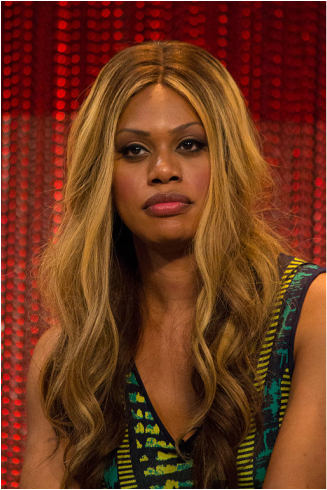 Laverne Cox. Photo by Dominick D. Retrieved from Wikimedia Commons. Laverne Cox. Photo by Dominick D. Retrieved from Wikimedia Commons. To protest not being able to form this organization—on a campus, I would like to mention, that had a debate club, a young Republicans club, a golf club, and a fencing club—we all decided that we would not stand for the pledge of allegiance one early spring morning. Although we all ended up in detention for the day and unfortunately gave up on our own version of a silent protest, our main goal was to point out that there is not “liberty and justice for all” in this country. LGBT people—especially the “T,” for transgender—are often left out of the conversation when it comes to equal rights. The main focus of the LGBT community has been gay marriage, and they are finally winning. 37 states and the District of Columbia have legalized gay marriage and another 8 states are in court proceedings and appeals are in progress. But there’s a more prominent and dangerous problem that persists in the LGBT community, and it’s something Laverne Cox wants to put a stop to. Laverne Cox is most known for her role as Sophia Burset on the Netflix Original Series Orange is the New Black. What some people might not know about her is that she not only plays a trans woman on the show, she is also transgender herself and is an advocate for trans people, particularly trans women of color. Laverne has used Orange is the New Black as a platform to confront transphobia and issues that trans people face. She understands how transphobia is related so closely to sexism and racism, and she is trying to change the conversation and make it more inclusive with the ever-growing abbreviation LGBTQAI+. by Carly Taylor
4/2/2015 0 Comments Prayers, Postcards, and Poetry: How Josephine Yu Rewrites Religion and Refigures the Southern Womanby Laci Mattison 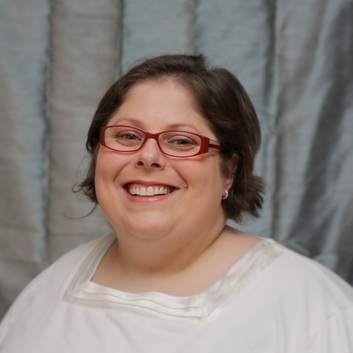 Photo courtesy of Josephine Yu. Photo courtesy of Josephine Yu. I first met Josephine Yu in the summer of 2008, when we were both taking a course designed to brush up on our reading of the French language so that we could pass a required test for our degrees at Florida State University. The room was cramped and sticky, and I knew no one. To make things worse, everyone seemed perfectly capable of translating Camus and Spinoza, as I sat hunched over my book attempting to remember any conjugation I might have learned in high school French class. And then one day, by luck, I sat next to Josephine, who shortly after invited me over for dinner. So began one of the most treasured friendships of my life thus far. Josephine is not only a dear friend, but she is also an award winning poet, whose work she has generously shared with me over the years. Her first book of poems, Prayer Book of the Anxious, was selected by poet and novelist Sarah Kennedy for the 15th Annual Elixir Press Poetry Award and will be published by the press in 2016. Over lunch last week, Josephine handed me a copy of her manuscript, laughing about how, in the process of printing a copy for me, she had ended up spending the morning making revisions. “Of course I can’t look at it without changing something. I revised a poem that I published eight or ten years ago!” by Molly Hand What makes a Southern woman? I sometimes wonder. Having lived in the South myself for many, many years and married into a family that has resided in Tallahassee, Florida for generations, I observe qualities of Southern women and notice my own difference, even as I have learned to display some of the characteristics, don camouflage, blend in. Among my core values is a refusal to make generalizations, to reduce heterogeneous groups to stereotypes or tidy demographic descriptions. Like Shakespeare’s Cleopatra, human beings are capable of infinite variety. This is true even of Southern women—it is impossible to make generalizations about them as a group, as though there were specific defining features and identifying marks. And yet, as a Northerner in a Southern town, I still feel an outsider sometimes. I think about this in terms of habitus, as explained by the French sociologist Pierre Bourdieu. I inhabit characteristics, a disposition, a way of being that marks me as slightly different. Whereas native Southern women inhabit their Southern-ness comfortably, unthinkingly, I must make an effort to wear that costume. 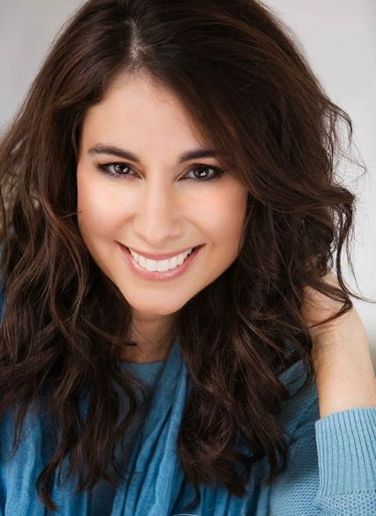 Photo courtesy of Laura Johnson. Photo courtesy of Laura Johnson. While the costume still feels awkward to me sometimes, Laura Johnson wears it gracefully. Johnson is a remarkable Southern woman because, although she isn’t from the South, she embodies Southern charm and is immersed in this community to such an extent that she seems fully a part of it, comporting herself with assurance and ease. Having made Tallahassee her home, she owns her Southern-ness and, as Executive Director of the Southern Shakespeare Festival, she is actively shaping the culture of this Southern community. When I first met Laura Johnson, I was immediately impressed. “Wait until you meet Mephistopheles!” This was how I had first heard about her. Brent Griffin, the co-director of Resurgens Theatre Company’s production of Christopher Marlowe’s Doctor Faustus, was filling me in on some details of the show, including plans for an all-female cast, with the exception of Faustus, played by Griffin himself. Cast as Faustus’s infernal companion, Johnson would be, Griffin promised, captivating. When I met Johnson shortly thereafter, any skepticism I had, any hyperbole I read in her praise, were immediately dispelled. Charming. Enchanting. Bewitching. Johnson casts a spell. by Brittany Barron 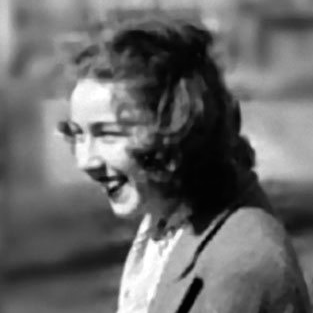 Flannery O'Connor, circa 1947. Photo by C. Cameron Mccauley. Retrieved from Wikimedia Commons. Flannery O'Connor, circa 1947. Photo by C. Cameron Mccauley. Retrieved from Wikimedia Commons. I talked my mom into traveling to Milledgeville, Georgia, and visiting Flannery O’Connor’s house easily. When I set my mind to the project for my Intermediate Composition class, which involved my favorite Southern writer, she knew to surrender. Less than four days later, we sat on O’Connor’s front porch like two Southern Belles at Andalusia, the farm where she lived until she passed away. However, our arrival was far less peaceful than an afternoon frolic. No matter where we go, we always forget to make a turn somewhere. Before reaching Andalusia, the small, right arrow sign did not mean turn ahead. It meant turn right now. Maybe we expected a bigger sign and a prettier driveway, but we veered off the highway to nothing more than a dirt road. Along the bumpy road, I read the sign “Keep dogs on a leash” and believed O’Connor would have added certain people–freaks–to that rule. |
Search by typing & pressing enter

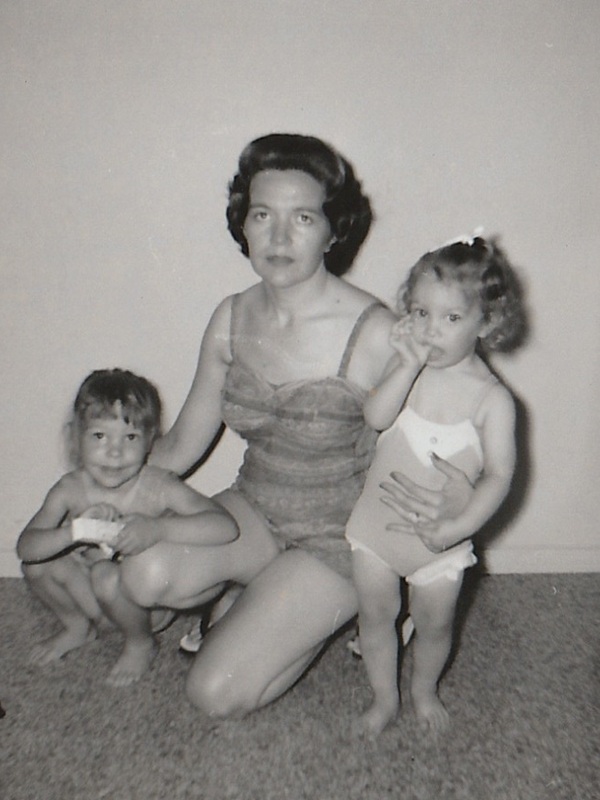
 RSS Feed
RSS Feed
